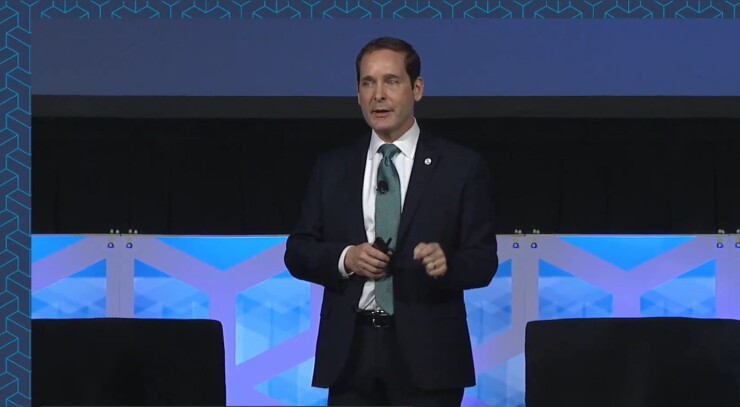The Institute of Internal Auditors is pushing back against part of a proposed new standard on audit confirmations from the Public Company Accounting Oversight Board, saying it would jeopardize the traditional relationship between internal and external auditors and criticizing the implication that internal auditors are untrustworthy.
IIA president and CEO Anthony Pugliese sent a
The IIA is objecting to a section of the PCAOB's
He believes that implies internal auditors are "untrustworthy or incapable of exhibiting due care in the performance of their duties."

Pugliese also objected to comments in a
Pugliese denounced that characterization as "false and inflammatory" and "completely unwarranted."
The PCAOB proposed the standard in December, replacing an interim standard that hasn't changed for two decades. The proposed auditing standard would take into account advances in auditing technology, but would apply to all methods of confirmation, including paper-based and electronic communications. The older interim standard is one of the many inherited by the PCAOB in 2003 from the American Institute of CPAs after the Sarbanes-Oxley Act of 2002 created the government-backed audit regulator (
Pugliese objected to the proposal soon after it was issued in December, contending it would unfairly put internal auditors at the center of an effort to regulate issues within CPA firms (
The PCAOB did not immediately respond to a request for comment.
Previously, the PCAOB's standard for evaluating internal auditors has been the Accounting Standard 2605 (AS 2605), "Consideration of the Internal Audit Function," in which the PCAOB specifically acknowledges that "internal auditors maintain objectivity with respect to the activity being audited."
Pugliese contended the "incongruity between the PCAOB's positions in AS 2605 and the present proposal creates regulatory mixed messages" and "jeopardizes longstanding collaborations between external audit firms and internal auditors."
To address these issues, the letter calls upon the PCAOB to maintain AS 2605 as the standard for evaluating internal auditors' involvement in the confirmation process and to make modifications in the proposed language for the new standard.
"While the scope of responsibilities for each profession is different, internal and external auditors must work in harmony to ensure that the governance, risk and control processes are in place and adequately working," Pugliese wrote. "Disparagement of either audit function — particularly from a government regulatory agency — undermines this partnership and risks engendering public mistrust in the auditing profession."
He called for an open dialogue with PCAOB chair Erica Williams and other PCAOB members to discuss the internal audit profession's concerns about the proposal and to work together to address them.




